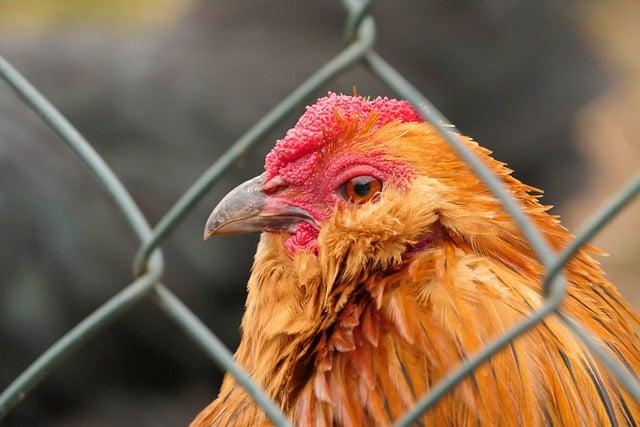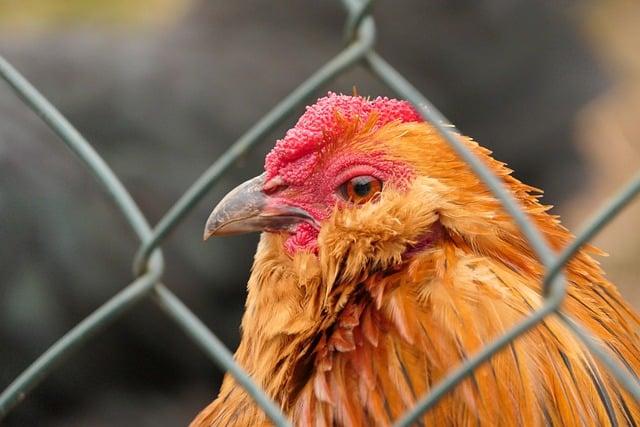Imagine a chilly morning where you’re whipping up a delicious breakfast of scrambled eggs. Your loyal canine companion watches you with hopeful eyes, tail wagging in anticipation. But can dogs eat scrambled eggs? The answer is a resounding yes! Scrambled eggs are not only safe for dogs but also packed with protein and essential nutrients. They can aid in digestion and provide a tasty treat. So, why not share a small portion with your furry friend? It’s a simple way to show love while ensuring their health and happiness!
Contents
- Understanding the Nutritional Benefits of Scrambled Eggs for Dogs
- Identifying Potential Risks and Allergies Associated with Egg Consumption
- Best Practices for Preparing Scrambled Eggs for Your Canine Companion
- Expert Recommendations on Serving Sizes and Frequency for Optimal Health
- Q&A
Understanding the Nutritional Benefits of Scrambled Eggs for Dogs
Scrambled eggs are not only a delicious treat for dogs but also a powerhouse of nutrition that can significantly benefit their health. Rich in high-quality protein, scrambled eggs provide essential amino acids that are crucial for muscle development and overall growth. This makes them an excellent addition to your dog’s diet, especially for active breeds or those recovering from illness.
In addition to protein, scrambled eggs are packed with vital vitamins and minerals. They contain:
- Vitamin A: Supports vision and immune function.
- Vitamin B12: Aids in red blood cell formation and neurological function.
- Riboflavin: Helps in energy production and cellular function.
- Selenium: Acts as an antioxidant, protecting cells from damage.
Moreover, the healthy fats found in scrambled eggs contribute to a shiny coat and healthy skin. These fats are essential for maintaining the integrity of cell membranes and can help reduce inflammation in dogs with skin issues. By incorporating scrambled eggs into your dog’s diet, you can enhance their overall well-being and vitality.
It’s important to prepare scrambled eggs without any added ingredients like salt, butter, or spices, as these can be harmful to dogs. A simple, plain scramble is the best way to ensure your furry friend reaps the full nutritional benefits. By offering this wholesome treat in moderation, you can provide your dog with a tasty and nutritious boost that supports their health and happiness.
Identifying Potential Risks and Allergies Associated with Egg Consumption
When considering adding scrambled eggs to your dog’s diet, it’s essential to be aware of potential risks and allergies that may arise. While eggs are generally safe for dogs, some can experience adverse reactions. **Egg allergies** can manifest in various ways, including skin irritations, gastrointestinal upset, or even more severe symptoms. It’s crucial to monitor your dog closely after introducing eggs to their meals, especially if they have a history of food sensitivities.
Another factor to consider is the **quality of the eggs** you choose. Eggs that are contaminated with bacteria, such as Salmonella, can pose significant health risks not only to dogs but also to humans. Always opt for fresh, high-quality eggs from reputable sources. Cooking the eggs thoroughly, as in scrambling, can help eliminate harmful bacteria, making them safer for your furry friend.
Additionally, some dogs may have underlying health conditions that could be exacerbated by egg consumption. For instance, dogs with pancreatitis or certain metabolic disorders may struggle to digest high-fat foods, including eggs. It’s advisable to consult with your veterinarian before introducing scrambled eggs into your dog’s diet, particularly if they have pre-existing health issues.
Lastly, portion control is vital when feeding your dog scrambled eggs. While they can be a nutritious treat, overindulgence can lead to **obesity** or other health complications. Ensure that eggs are given in moderation and as part of a balanced diet. By being mindful of these potential risks and allergies, you can make informed decisions that contribute to your dog’s overall well-being.
Best Practices for Preparing Scrambled Eggs for Your Canine Companion
When it comes to treating your furry friend to scrambled eggs, preparation is key to ensuring a healthy and enjoyable experience. Start by using **fresh, high-quality eggs**. Organic or free-range eggs are often the best choices, as they are free from harmful additives and provide a richer nutrient profile. Always crack the eggs into a clean bowl and inspect them for any signs of spoilage before cooking.
Cooking method matters significantly. **Avoid using butter or oil** when scrambling eggs for your dog, as these can add unnecessary fats that may upset their stomach. Instead, opt for a non-stick skillet or a well-seasoned cast iron pan. Cook the eggs on low heat, stirring gently to create soft, fluffy curds. This method not only enhances the texture but also preserves the nutritional value of the eggs.
Portion control is essential when introducing scrambled eggs into your dog’s diet. A good rule of thumb is to serve **one egg for every 20 pounds of body weight**. This ensures that your dog receives the benefits of the eggs without overloading their system. Additionally, consider mixing the scrambled eggs with other dog-friendly ingredients, such as cooked vegetables or lean meats, to create a balanced meal that your canine companion will love.
Lastly, always allow the scrambled eggs to cool before serving them to your dog. Hot food can cause burns and discomfort. Once cooled, you can serve the eggs as a standalone treat or mix them into your dog’s regular food for an added protein boost. Remember to monitor your dog for any adverse reactions, especially if it’s their first time trying eggs, and consult your veterinarian if you have any concerns about their diet.
Expert Recommendations on Serving Sizes and Frequency for Optimal Health
When considering incorporating scrambled eggs into your dog’s diet, it’s essential to focus on appropriate serving sizes. **Moderation is key**; a small amount can be a delightful treat, but too much can lead to digestive issues. For an average-sized dog, a couple of tablespoons of scrambled eggs once or twice a week is generally sufficient. This allows your furry friend to enjoy the benefits of eggs without overwhelming their system.
Frequency of serving scrambled eggs should also be taken into account. **Eggs are rich in protein and fat**, which can be beneficial, but they should not replace your dog’s regular meals. Instead, think of scrambled eggs as an occasional supplement or a special reward. This approach ensures that your dog receives a balanced diet while still enjoying the taste and texture of eggs.
It’s crucial to prepare scrambled eggs without any added ingredients that could be harmful to dogs. **Avoid using butter, oil, or seasoning** such as salt and pepper, as these can lead to health complications. Instead, cook the eggs plain and serve them in small portions. This way, you can provide a nutritious snack that aligns with your dog’s dietary needs.
Lastly, always monitor your dog’s reaction when introducing new foods. **Watch for any signs of allergies or digestive upset**, such as vomiting or diarrhea. If your dog enjoys scrambled eggs and shows no adverse reactions, you can confidently continue to offer them as an occasional treat. Remember, the goal is to enhance your dog’s diet while ensuring their overall health and well-being.
Q&A
-
Can dogs eat scrambled eggs safely?
Yes, dogs can eat scrambled eggs safely in moderation. Eggs are a great source of protein and essential nutrients for your dog. Just ensure they are cooked thoroughly without any added ingredients like salt, butter, or spices that could be harmful.
-
What are the benefits of feeding scrambled eggs to dogs?
Scrambled eggs provide numerous benefits, including:
- High-quality protein for muscle development
- Rich in vitamins and minerals, such as Vitamin A and riboflavin
- Easy to digest, making them a good option for dogs with upset stomachs
-
How should I prepare scrambled eggs for my dog?
To prepare scrambled eggs for your dog, follow these steps:
- Use a non-stick pan to avoid the need for added fats.
- Cook the eggs thoroughly until they are firm.
- Avoid adding salt, pepper, or other seasonings.
-
Are there any risks associated with feeding scrambled eggs to dogs?
While scrambled eggs are generally safe, there are a few considerations:
- Introduce eggs gradually to avoid digestive upset.
- Monitor for any allergic reactions or sensitivities.
- Limit portion sizes to prevent excessive calorie intake.
scrambled eggs can be a nutritious treat for your dog when prepared properly. By incorporating this protein-rich food into their diet occasionally, you can enhance their health and happiness. Always consult your vet for personalized advice!

大家好,我是彼得潘,專業的手法身體治療師。我喜歡探索和研究各種主題,並透過與人工智慧的合作分享專業、實用、有趣的文章。我們定期進行人工審核,以確保內容的準確性。如果您發現文章中有任何不準確的地方,請隨時與我們聯繫,我們會及時糾正。您可以透過 [email protected] 與我們聯繫。



